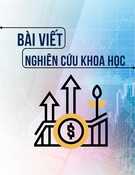
Chapter 23
Money and modern banking
David Begg, Stanley Fischer and Rudiger Dornbusch, Economics,
6th Edition, McGraw-Hill, 2000
Power Point presentation by Peter Smith

23.2
Some key questions
■Why does society need money?
■Why do governments wish to
influence money supply?
■How do financial markets interact
with the “real” economy?
■What is the relationship between
money and interest rates?

23.3
Money
■Any generally accepted means of
payment for delivery of goods or the
settlement of debt
■Legal money
–notes and coins
■Customary money
–IOU money based on private debt of the
individual
■e.g. bank deposit.

23.4
Money and its functions
■Medium of exchange
–money provides a medium for the exchange of goods
and services which is more efficient than barter
■Unit of account
–a unit in which prices are quoted and accounts are kept
■Store of value
–money can be used to make purchases in the future
■Standard of deferred payment
–a unit of account over time: this enables borrowing and
lending

23.5
Modern banking
■A financial intermediary
–an institution that specializes in bringing
lenders and borrowers together
■e.g. a commercial bank, which has a government
licence to make loans and issue deposits
■including deposits against which cheques can be
written
■Clearing system
–a set of arrangements in which debts between
banks are settled














![Ngân hàng câu hỏi trắc nghiệm Lý thuyết Tài chính - Tiền tệ: Học phần [Mô tả thêm về nội dung học phần nếu có]](https://cdn.tailieu.vn/images/document/thumbnail/2025/20251003/kimphuong1001/135x160/26991759476043.jpg)

![Bài tập Tài chính doanh nghiệp có đáp án [kèm lời giải chi tiết]](https://cdn.tailieu.vn/images/document/thumbnail/2025/20250927/aimy1105nd@gmail.com/135x160/92021759119232.jpg)









